Budget Deal Moving Ahead, Despite Outrage on the Right
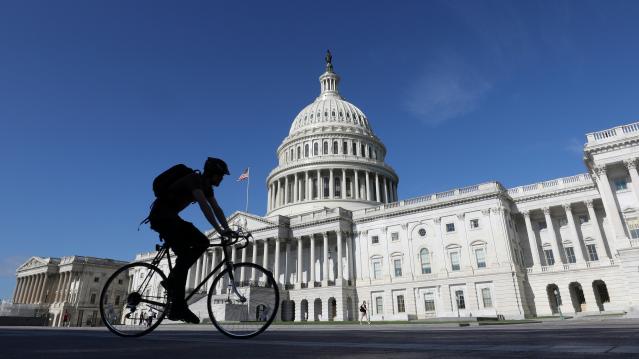
The bipartisan deal to suspend the debt ceiling and increase federal spending over the next two years will get a vote in the House on Thursday, House Majority Leader Steny Hoyer (D-MD) said late Tuesday. Leaders in both parties have expressed confidence that the bill will pass before lawmakers leave town for their August recess.
"We're gonna pass it," Hoyer told reporters. "I think we'll get a good number [of votes]. I don't know if it's gonna be huge, but we're gonna pass it."
President Trump announced that he backs the deal, removing one possible hurdle for the bill. “Budget Deal gives great victories to our Military and Vets, keeps out Democrat poison pill riders. Republicans and Democrats in Congress need to act ASAP and support this deal,” he tweeted Tuesday evening.
Despite widespread agreement that the bill will pass, however, not everyone is on board.
Grumbles from the left: Some progressive Democrats have been critical of the deal, portraying it as too easy on Republicans. Worried that the agreement could set up a budget crisis in 2021, Rep. Ro Khanna (D-CA) said he was “concerned that it was a two-year deal. Why not a one year deal?... It seems like it’s basically handcuffing the next president.” Other liberals, noting that Democratic leaders have agreed to avoid “poison pill” riders on controversial issues such as abortion and funding for the border wall in the funding bills that must pass this fall, lamented their loss of leverage in those negotiations.
Outrage on the right: Resistance to the deal was more pronounced on the right, with the hardline House Freedom Caucus announcing Tuesday that it would not support the bill due to concerns about the growing national debt. “Our country is undeniably headed down a path of fiscal insolvency and rapidly approaching $23 trillion in debt. … All sides should go back to the drawing board and work around the clock, canceling recess if necessary, on a responsible budget agreement that serves American taxpayers better—not a $323 billion spending frenzy with no serious offsets,” the 31-member group said in a statement.
The deficit hawks at the Committee for Responsible Federal published “Five Reasons to Oppose the Budget Deal,” which include its purported $1.7 trillion cost over 10 years. CRFB noted that the agreement would increase discretionary spending by 21 percent during President Trump’s first term, pushing such spending to near-record levels.
Sen. John Kennedy (R-LA) was more colorful in his criticism, saying, “You don’t have to be Euclid to understand the math here. We’re like Thelma and Louise in that car headed toward the cliff.” Nevertheless, Kennedy said he would consider supporting the deal.
Is the deficit hawk dead? The budget deal represents “the culmination of years of slipping fiscal discipline in Washington,” said Robert Costa and Mike DeBonis of The Washington Post, and it highlights the declining influence of fiscal conservatives in the capital, at least as far as policy is concerned. Sen. James Lankford (R-OK) said the Republican Party’s credibility on fiscal restraint is “long gone.”
Although it may be too early to declare the fiscal hawk extinct – plenty of critics say the bird will return as soon as there’s a Democratic president – it certainly seems to be in ill health. As the University of Virginia's Larry Sabato said Wednesday: “A battered bird has been named to the list of endangered species. The ‘deficit hawk’ is on the road to extinction. Rarely spotted around Washington, D.C., the deficit hawk’s last remaining habitat is found in some state capitals.”
Some Republicans said that fiscal conservatism was never really a core Republican value, dating back to President Reagan’s tax-cut-and-spend policies, and that Paul Ryan’s emphasis on fiscal issues was an aberration. “It was never the party of Paul Ryan,” former House Speaker Newt Gingrich told the Post. “He’s a brilliant guy, but he filled a policy gap. The reality here is that Republicans were never going to get spending cuts with Speaker Pelosi running the House, and they didn’t want an economic meltdown or shutdown this summer.”
Is the whole debate missing the point? William Gale of the Brookings Institution, who served on President George H.W. Bush’s Council of Economic Advisers, said he wasn’t sure why the budget deal was producing so much hostility, since it basically maintains the status quo and – more importantly – is focused solely on discretionary spending. “There *is* a long-term budget issue,” Gale tweeted Tuesday, “but cutting [discretionary spending] is not the way to go.”
Instead, Gale says that any serious fiscal plan must focus on the mandatory side of the ledger, where the rapidly increasing costs of health care and retirement are straining against revenues reduced by repeated rounds of tax cuts. Gale recommends a combination of entitlement reductions and revenue increases – a standard mix of policy options that faces an uncertain future, with well-entrenched interest groups standing opposed to movement in either direction.
The Amount of Money Lost to Ad-Blocking Is Skyrocketing

Are you annoyed by online pop-up ads or those video commercials that automatically start playing when you visit a new Web page? Worried about advertisers collecting your personal information online? You’re not alone. In the perpetual cat and mouse game between marketers and Internet users, the utilization of ad-blocking software by Web surfers is growing rapidly — and it’s costing advertisers billions.
Ad-blocking technology was employed by 45 million active users during the second quarter of 2015, a new report by PageFair and Adobe found. This represents 16 percent of the U.S. online population. In the past year, the number of users blocking ads grew by 48 percent.
In 2014, ad-blocking in the U.S. cost an estimated $5.8 billion in lost advertising revenue. That figure is expected to jump to $10.7 billion in 2015 and $20.3 billion in 2016 as more users adopt the practice. The new version of Apple’s mobile operating system coming this fall is expected to make the problem worse, since it will allow iPhone users to block ads in Safari with a simple app.
In addition to lost revenue, ad-blocking skews the demographics of the online audience. Websites that cater to younger users — a demographic advertisers are eager to target — are the ones most significantly affected by ad-blocking.
Related: The Future of Advertising: Everything, Everywhere, All the Time
A survey in the PageFair/Adobe report found that the main reason individuals block ads is a concern about advertisers mishandling personal data.
Advertisers have a long way to go when it comes to trust. An article in AdAge argues that marketers should be more transparent about the ways they use the information they collect. It recommends giving users more control of their personal data, the ability to decide how much information to share and the choice to opt-out at any time.
Trust isn’t the only issue, though. The appeal of ad-blocking is growing as “malvertising” attacks become more common. Last month, Yahoo’s ad network was targeted for seven days by hackers who sent out corrupt bits of code through Flash-based ads to visitors on Yahoo’s popular sites. Some users were redirected to sites that paid the hackers for traffic, while others had their computers locked for ransom.
Top Reads from The Fiscal Times:
- Bush Looks to Make Up for Past Blunders on Iraq Policy
- Oil Sector Insiders Signal It’s Time to Buy
- How a Soaring Dollar Forced China to Devalue Its Currency
How a Smart Home Can Save You Time and Money
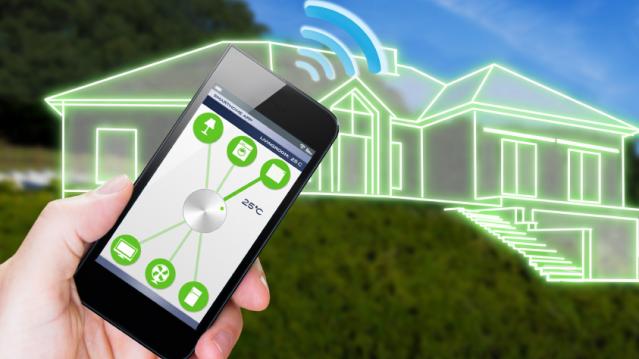
More than a quarter of Americans have smart home products and they report that the devices save them an average of 30 minutes a day and more than $1,000 per year, according to a new report by Coldwell Banker and CNET.
Adoption of smart home products is even higher among millennials, with more than half embracing the technology. Additionally, parents of young children are twice as likely to have installed smart home products than non-parents.
“Smart home technology is catching on because it is literally changing the way we live in our homes,” Coldwell Banker Chief Marketing Officer Sean Blankenship said in a statement. “Not only is it shifting the financial perception of the home, but it is also transforming our emotional connection to our homes.”
Related: Want a Smarter Home? You Don’t Have to Wait
More than eight in 10 of those surveyed said they’d be more likely to buy a home if it included smart technology like connected lights, thermostats or security systems. Nearly three-quarters said that smart home products provide peace of mind when it comes to home security.
Those numbers are expected to grow as technology gets better and cheaper, and millennials start purchasing and upgrading homes in larger numbers. A 2013 report by the Organization for Economic Co-Operation and development found that a four-person family had about 10 connected devices, but projected that number to grow to about 25 in five years and as many as 50 in 10 years.
Top Reads from the Fiscal Times:
- Clinton Attempts to Cure the Email Blues. Again.
- Did Kasich Just Do an About-Face on Climate Change?
- While Trump Whirls and Rages, Cruz Stays the Course
On Campaign Trail, Rubio Truant in the Senate
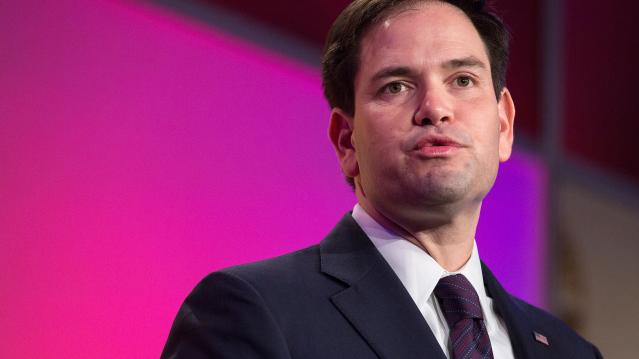
Last week Sen. Marco Rubio warned it’s “important to be qualified, but if this election is a resume competition, then Hillary Clinton's gonna be the next president” because of her long history in office and in federal government.
For his sake, he’d better hope the GOP primary doesn’t turn into a disqualifying truancy competition, too.
A study by The Tampa Bay Times found that of the four Republican senators running for the White House, Rubio has missed the most Senate votes.
In June alone, Rubio missed 67 percent of the Senate votes, and he wasn’t there for more than half of them in July, according to The Times.
Related: The New York Times Just Made Rubio the Hero of the Struggling Middle Class
In all, the first-term lawmaker missed 29 percent of Senate votes, or 76 of 262 recorded, in the first six months of 2015. Over 50 of those came after his April 13 campaign announcement.
The numbers show how much time Rubio has had to spend off Capitol Hill and on the campaign trail as he looks to break out of a crowded GOP field that includes his friend and former Florida Gov. Jeb Bush.
By contrast, Sen. Ted Cruz (R-TX) has missed 54 votes since declaring his candidacy in March, while Sen. Lindsey Graham (R-SC) was truant for 35 votes since he launched his presidential bid on June 1.
Sen. Rand Paul (R-KY) has skipped only three votes throughout 2015 and only one since declaring for president.
On the Democratic side, Sen. Bernie Sanders (I-VT) has missed four votes since hitting the campaign trail.
Rubio has missed nearly 11 percent of votes since he joined the Senate in January 2011, The Times analysis shows, well above the median 1.6 percent rate for the lifetimes of current senators.
A Rubio spokesperson did not respond to a request for comment.
Top Reads from The Fiscal Times:
- Trump’s Debate Performance Should Kill His Candidacy … but Won’t
- Battle Lines Form in the Fight Over Social Security Payment Reductions
- Robert Gates Says U.S. Got ‘Out-Negotiated’ on Iran Deal, Backs It Anyway
Did Kasich Just Do an About-Face on Climate Change?
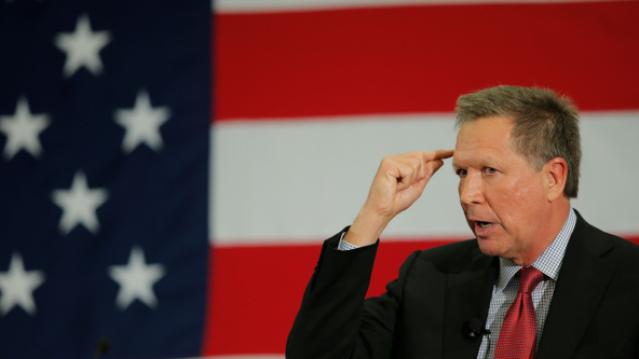
Maybe it’s because he is still feeling his way as a late entrant into the GOP presidential campaign, but Ohio Gov. John Kasich did a fairly dramatic about-face over the weekend on the politically charged issue of climate change.
Kasich, a former House Budget Committee chair and Wall Street business executive, has positioned himself as a “kinder, gentler” conservative than Jeb Bush, Ted Cruz and the dozen other Republicans running for the 2016 presidential nomination. So it wasn’t surprising that he would take a more moderate stand on global warming during the first nationally televised GOP presidential debate Thursday evening.
Related: 10 Things You Need to Know About John Kasich
Kasich, a devout Christian, declared during the two-hour debate sponsored by Fox News that climate change is a real problem requiring government and society to protect the “creation that the Lord has given us.”
While the vast majority of Republicans on Capitol Hill and the campaign trail are highly skeptical of President Obama’s campaign to curb industrial carbon emissions to prevent the disastrous long term effects of global warming on the environment and economy, Kasich appeared to be one of the few who took the threat seriously.
He emphasized the importance of unity and cooperation, saying at one point that “we’ve got to unite our country again, because we’re stronger when we are united and we are weaker when we are divided.”
Just a few days later, though, after winning plaudits for his Thursday night performance – with some even favorably comparing his views on environmental threats to those of Pope Francis – Kasich sounded much like a climate-change doubter.
Related: Does Kasich Have a Chance? How He Can Catch Up to the GOP
During an appearance on NBC News’ “Meet the Press,” Kasich told moderator Chuck Todd that “I think man absolutely affects the environment, but as to whether, you know, what the impact is, the overall impact, I think that’s a legitimate debate.”
Kasich went on to say that in Ohio, “we preciously take care of Lake Erie, and we’ve reduced emissions by 30 percent over the last ten years.”
“We believe in alternative energy,” he added. “So of course we have to be sensitive to it, but we don’t want to destroy people’s jobs, based on some theory that’s not proven.”
According to National Journal, the Kasich 2016 campaign attempted to clarify his remarks following his appearance on “Meet the Press.” "The governor has long believed climate change is real and we need to do something about it,” according to the statement. “The debate over exact percentages of why it is happening is less important than what can be done about it. We know it is real, we know man has an impact, and we know we need to do something."
A number of prominent presidential candidates -- including former Florida governor Jeb Bush and Sens. Ted Cruz, Marco Rubio, and Rand Paul -- are climate change doubters or deniers. Sen. Lindsey Graham of South Carolina is one of the few who unquestionably accepts scientific evidence that man-made greenhouse gas emissions are a principal cause of global warming, and has sharply criticized his party for lacking a comprehensive environmental platform.
Top Reads From The Fiscal Times:
- How GOP Candidates Would Steer U.S. Foreign Policy
- Fiorina Takes on Trump in a Brave Battle of the Sexes
- As Politicians Bicker Over Funding, Military Families Cut Back on Vacations
Need a Good Dentist? You Might Want to Head to Mexico
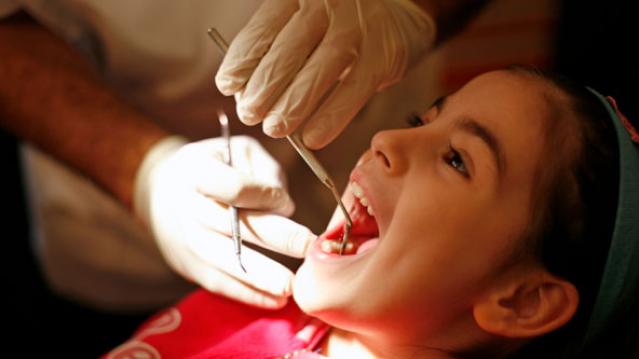
Can you say “dentista?”
Increasingly expensive dental care costs are forcing seniors to bite down hard—and head to Mexico to preserve their pearly whites, the Associated Press reports.
Nearly 70 percent of seniors do not have dental insurance, according to a 2013 Harris Interactive survey commissioned by Oral Health America. Medicare does not cover dental care, and many employers do not offer post-retirement health benefits. You can get dental coverage through the Affordable Care Act, but only if you purchase general health coverage first. (Many seniors already have that coverage.)
Even with coverage, crowns, bridgework, implants and dental surgery can easily exceed the annual limit. As a result, seniors who need extensive dental work may have limited options and could face out-of-pocket costs running into the thousands or tens of thousands of dollars; 23 percent of seniors in the Oral Health America survey said they have not seen a dental provider in five years.
Related: The Hidden Costs of Dental Neglect
Just as people traveled to Canada to buy their prescription drugs at lower cost or traveling the world for other medical services and procedures, more Americans are now flocking to places like Los Algodones, Mexico for dental care. Dental care in Mexico is much cheaper, thanks to lower labor costs and fewer regulatory requirements — factors that you should keep in mind before heading south of the border. The dentists in Mexico maintain that they may not have as much education as their American counterparts, but they spend more time practicing clinical work.
It’s not just people who live in border cities like El Paso, Texas crossing the border to take care of their teeth. The Associated Press reports that shuttle services exist to take dental patients from the Phoenix area to Los Algodones, a 200-mile trip.
Before you book a trip, though, remember that should something go wrong you may not have the same legal recourse as in the U.S., and the dentists may use different types of equipment--so do your research first.
Top Reads from The Fiscal Times:
- America’s 10 Top Selling Medications
- Medicare’s Bold New Move on Knee and Hip Replacements
- 9 Social Security Tips You Need to Know Right Now
